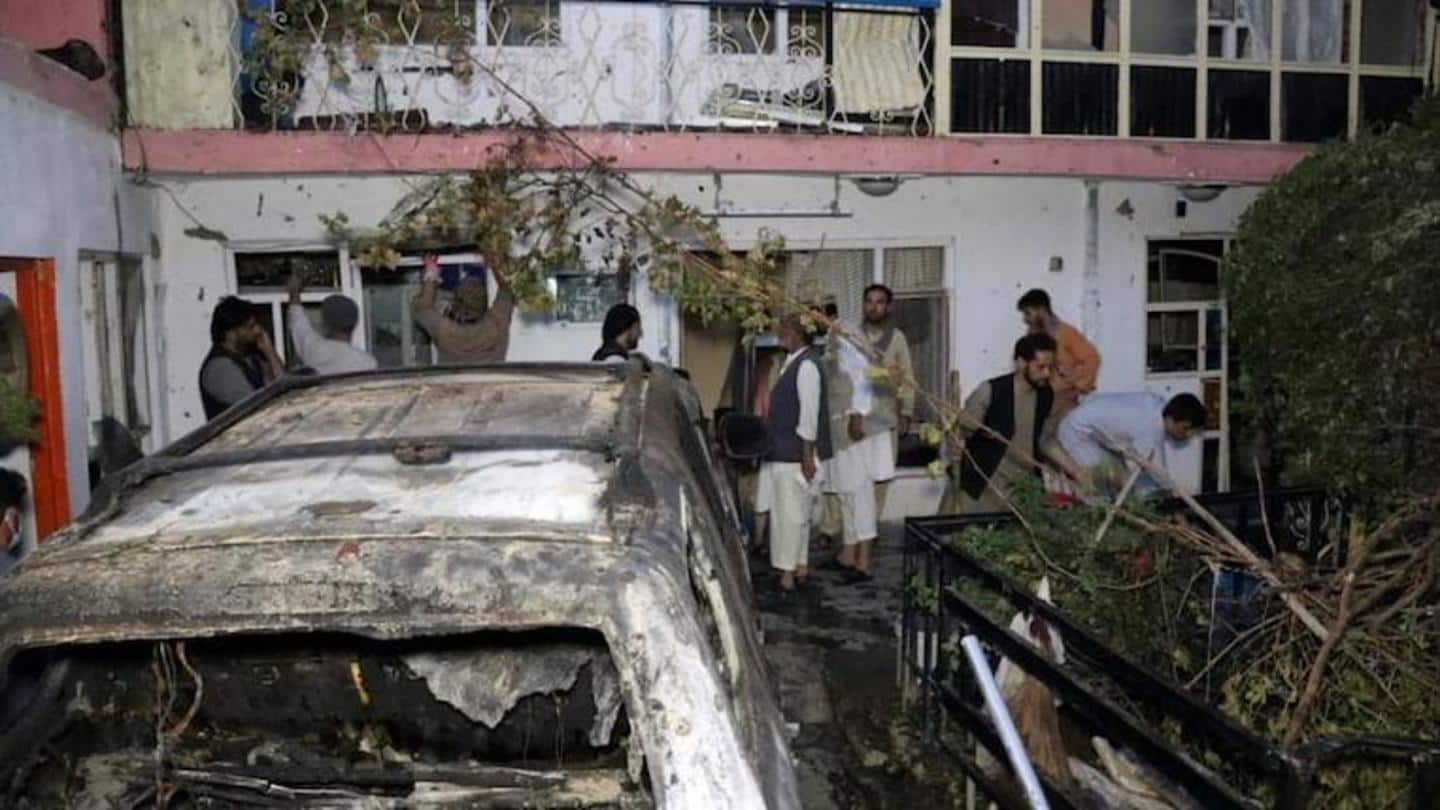
Kabul: CIA warned of children's presence before US drone strike
What's the story
Seconds before the United States carried out a drone strike on a suspected terror target in Kabul on August 29, the Central Intelligence Agency had warned of the presence of civilians, including children, around the target.
The warning came too late and the missile hit a vehicle, killing ten civilians, including children.
Following a probe, the US military Saturday called it a "tragic mistake."
Details
Unlikely those killed in strike associated with ISIS-K: US
General Frank McKenzie, the commander of the US Central Command, apologized for the error after reviewing the findings of a probe into the strike.
He said it was "unlikely that the vehicle and those who died in the drone strike were associated with ISIS-K or were a direct threat to US forces."
Thus far, Pentagon officials had been dismissive about any wrongdoing.
US
What did the US say about the strike?
Giving a detailed account of the strike, McKenzie said the strike was not a rushed one.
He said they had intelligence that a white Toyota Corolla would be used in an attack against US forces.
A similar vehicle was detected in a Kabul compound, suspected to be used by IS militants.
The vehicle was tracked by agencies for eight hours before the strike.
Quote
Our intelligence was wrong: Gen McKenzie
The suspected vehicle was attacked at a point just a couple of miles away from the Kabul airport. Gen McKenzie maintained even though all intelligence assessments were done before the strike, "Clearly our intelligence was wrong on this particular white Toyota Corolla."
Ex-gratia
US considering giving ex-gratia payments to victims
Accepting the intelligence failure, Gen McKenzie said, "I'm here today to set the record straight and acknowledge our mistakes."
"I will end my remarks with the same note of sincere and profound condolences to the family and friends of those who died in this tragic strike."
The US is also considering making ex-gratia payments to the families of the victims.
Context
US was in denial despite reports of civilian casualty
Despite reports of civilian casualties in the strike, the US military had earlier argued that the strike was conducted correctly.
Ramin Yousufi—who lost ten family members—said the strike hit the house when his cousin arrived from work and his children gathered around the car to greet him.
The US had pointed at "secondary explosions" from the vehicle to indicate the "presence of explosive material."